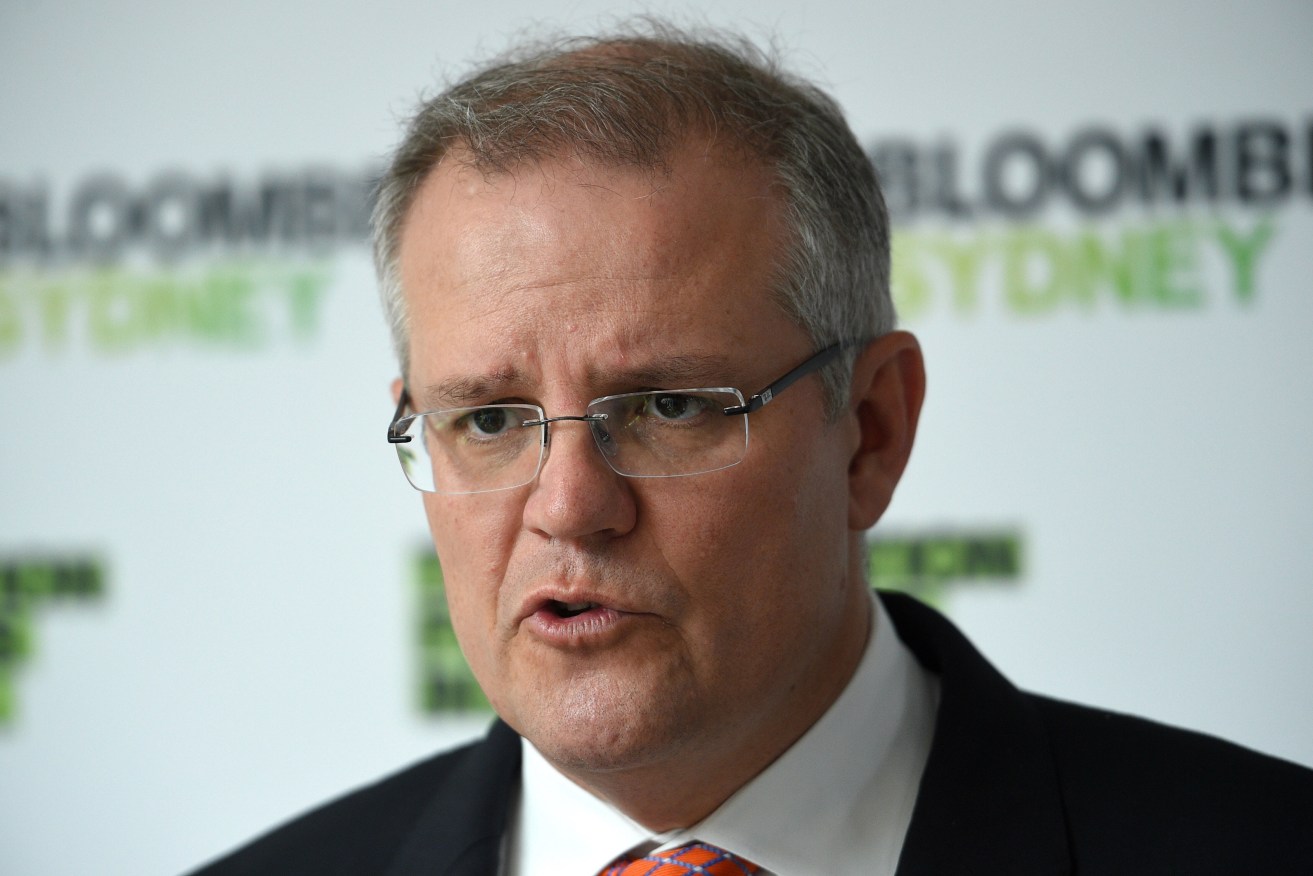Good news for budget, whenever that is
It’s often said that the only two things certain in life are death and taxes. A third, until now, was the timing of the federal budget.

Federal Treasurer Scott Morrison. AAP image
Unless you’ve found the secret to immortality or have an extremely good accountant, the first two still exist.
But in a bizarre twist, budget night on the second Tuesday in May might not now be set in stone.
Treasurer Scott Morrison is scheduled to deliver his first budget on May 10.
But that date leaves his prime minister with only one day to call a double-dissolution election in which the entire Senate will be up for grabs.
Other than the cut-and-run atmospherics of delivering a budget one day and calling an election the next, there are the practicalities of having enough time to pass the budget’s money bills through parliament to keep the business of government working beyond June 30 and into a new financial year.
Rumours are rife the budget will be brought forward to May 3 to give the government sufficient time to tie up any loose ends.
It would also provide breathing space for another crack at passing legislation restoring the Australian Building and Construction Commission.
A second Senate rejection gives the government a plausible reason for a double dissolution.
Once Malcolm Turnbull stops the mind games over budget and election timing, Morrison might actually have an improved economic story to tell.
Last week’s national accounts showed economic growth accelerated by three per cent in 2015, the fastest annual pace since the coalition came to power.
It was even stronger than the Reserve Bank was anticipating.
Central bank deputy governor Philip Lowe believes it’s a further sign Australia is “successfully rebalancing” following the mining investment boom.
Global credit rating agency Moody’s also gave the result a tick of approval.
“The robust GDP growth performance is credit positive because it demonstrates Australia’s resilience to external shock,” it said.
However, the figures showed a further decline in Australia’s terms of trade at the tail-end of last year as weakening commodity prices again weighed on export earnings, and in turn government revenues.
This was a key factor behind the revenue write-downs in December’s mid-year budget review, resulting in a further blow-out in deficits over the next four years and the need to push out the timing of a surplus by another year to 2020/21.
But there was some good news for Morrison this week – a record one-day jump in the iron ore price of nearly 20 per cent to over $US63 a tonne.
It has since eased to $US58, but compares favourably with Treasury’s assumption of $US39 at the time of the mid-year economic and fiscal outlook.
That means a boost to the budget bottom line without raising a finger.
The theory goes that for every $US1 increase in the price of iron ore, the government garners $250 million in revenue a year.
For Morrison that could be a $5 billion bonus.
But given the volatility of commodity markets, that’s as definite as the timing of the election and the budget.
AAP




